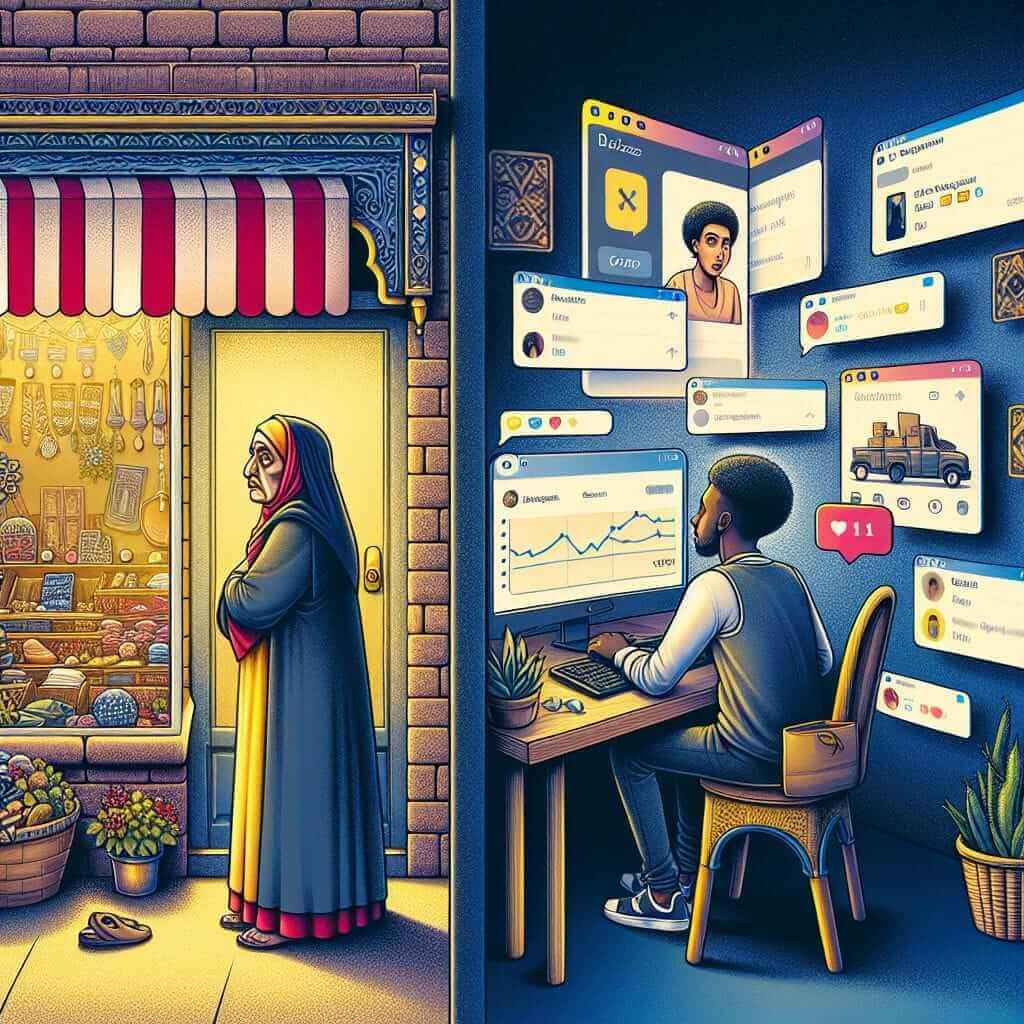Digital transformation has significantly changed myriad aspects of traditional businesses. Given its relevance and the sweeping influence it imposes, this topic frequently appears in IELTS Writing Task 2. Analyzing past IELTS tests reveals a rising tendency to include questions related to technology and business. Given this trend, it’s crucial for candidates to prepare thoroughly for such topics. Let us examine one prominent example of an IELTS Writing Task 2 prompt related to digital transformation and traditional businesses.
Sample IELTS Writing Task 2 Prompt
Many traditional businesses are being eclipsed by modern digital firms. Discuss the impact of digital transformation on conventional businesses, and suggest ways in which these businesses can adapt to market changes.
Analyzing the Prompt
The prompt requires us to:
- Discuss the impact of digital transformation on traditional businesses.
- Provide suggestions for these traditional businesses to adapt to current market changes.
We need to structure the essay clearly, addressing both aspects: effects and solutions.
Model Answer
Introduction:
Digital transformation is a disruptive force that is reshaping the landscape of traditional businesses. From retail to banking, every sector is experiencing the inevitable shift towards digitalization. This essay will examine the profound impacts of digital transformation on conventional businesses and propose strategies for these businesses to remain competitive in this evolving market.
Body Paragraph 1:
Digital transformation has an array of significant effects on traditional businesses. Firstly, it fundamentally alters consumer behavior. The convenience and speed afforded by digital platforms make online shopping and services the preferred choice of modern consumers. This shift has led many conventional brick-and-mortar stores to face dwindling foot traffic and revenue. Additionally, digital transformation introduces high operational efficiencies through automation and data analytics. This development leaves traditional businesses struggling to keep up with the productivity and insightful decision-making that digitally transformed businesses enjoy. Lastly, digital platforms foster global competition. Small enterprises can now access international markets, intensifying competition and pressuring traditional businesses to innovate or risk obsolescence.
<
Body Paragraph 2:
However, traditional businesses can adapt to these market changes by embracing several strategies. One effective approach is digital integration. By adopting e-commerce platforms, a traditional retailer can extend its reach beyond geographical constraints and enhance customer engagement through personalized experiences. Investing in digital marketing is another crucial strategy. Traditional businesses can leverage social media and search engine optimization to attract and retain customers more effectively than conventional advertising methods. Further, collaborating with tech companies can facilitate access to cutting-edge technologies and expertise, enabling traditional firms to innovate products and services swiftly. Finally, continuous upskilling of employees ensures they can efficiently operate within the new digital framework, driving sustained business growth.
Conclusion:
In conclusion, digital transformation presents both challenges and opportunities for traditional businesses. While it disrupts conventional operations, it also offers avenues for growth and innovation. By adopting digital tools, investing in digital marketing, and continuously upskilling employees, traditional businesses can adapt and thrive in the digital era.
Word Count: 318
Tips for Writing on This Topic
Vocabulary and Grammar Tips
When writing about digital transformation, it’s crucial to include relevant terminology and use it appropriately. Here are some key phrases and sentence structures to keep in mind:
- Terminology: digital transformation, brick-and-mortar stores, e-commerce, automation, data analytics, digital integration, digital marketing.
- Grammar Structures: comparative and superlative forms to highlight changes (e.g., “more effective,” “higher productivity”), passive voice to emphasize the action (e.g., “is being reshaped,” “are being eclipsed”), complex sentences to show relationships between ideas (e.g., “Although digital transformation poses challenges, it also presents opportunities”).
Difficult Vocabulary:
Here are some terms from the model essay that might be challenging:
- Disruptive (adj.) – /dɪsˈrʌptɪv/: causing radical change or action.
- Operational efficiencies (noun phrase) – /ˌɒpəˈreɪʃənəl ɪˈfɪʃənsiz/: procedures that result in efficient performance or productive outputs.
- Insights (noun) – /ˈɪn.saɪts/: accurate and deep understanding.
- E-commerce (noun) – /ˈiː.kɒm.ɜːs/: commercial transactions conducted electronically on the internet.
- Upskilling (noun) – /ˈʌp.skɪ.lɪŋ/: the process of learning new skills or of teaching workers new skills.
Conclusion
To summarize, understanding the impact of digital transformation on traditional businesses is essential for IELTS Writing Task 2 candidates. The same can be expected to rise in future prompts due to the increasing relevance of technology in everyday life. As seen in our model answer, candidates should focus on articulating clear impacts, introducing viable solutions, and using precise vocabulary. Further practice can be done with related topics such as “The impact of digital innovation on traditional industries,” “The impact of digital transformation on small businesses,” and “The influence of digital marketing on traditional advertising.”
Good luck!